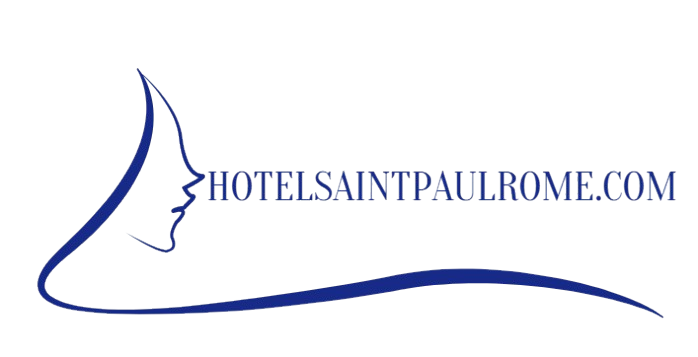Understanding Natural Remedies
Natural remedies encompass a wide variety of health practices, including herbal medicine, dietary supplements, and alternative therapies. Traditionally, these remedies have been integral to various cultures around the world, often forming the foundation of ancient medicinal practices. For instance, many indigenous cultures have relied on plants and natural resources to treat ailments, a practice that has been passed down through generations. In contrast to modern medicine, which typically focuses on pharmaceuticals and surgical interventions, natural remedies aim to promote healing through nature-based solutions.
Herbal medicine is one of the most well-known forms of natural remedy, utilizing plants and plant extracts for therapeutic purposes. Common examples include the use of echinacea for immune support, ginger for digestive issues, and valerian root for sleep disorders. Dietary supplements, on the other hand, include vitamins, minerals, and other nutrients that are taken to complement the diet and promote overall health. These supplements can play a critical role in addressing deficiencies and supporting bodily functions, but their efficacy can vary based on individual health conditions and lifestyles.
Alternative therapies, such as acupuncture, chiropractic manipulation, and homeopathy, represent additional avenues through which individuals may seek healing. The safety and effectiveness of natural remedies remain subjects of ongoing research. While some studies support the benefits of specific remedies, others present cautionary tales regarding efficacy and potential side effects. Therefore, it is essential for consumers to educate themselves based on scientific research and consult health professionals before integrating natural remedies into their health regimen. Ultimately, understanding the role of natural remedies in health and wellness can provide individuals with a broader perspective on their options, allowing for more informed decisions regarding their health.
Exploring Modern Medicine
Modern medicine represents a culmination of scientific advances and rigorous research, characterized by its reliance on biotechnology, pharmaceuticals, and evidence-based treatments. This sophisticated system has evolved significantly, moving from traditional methods to a more structured approach that integrates technology and systematic experimentation. Through a combination of clinical trials and peer-reviewed studies, medical professionals seek to identify effective treatment protocols for a wide array of health conditions.
At the heart of modern medicine lies the pharmaceutical industry, which plays a critical role in developing drugs that address various ailments. The processes involved in bringing a drug to market are intricate and lengthy, involving multiple phases, including discovery, preclinical testing, and clinical trials. These stages ensure that any medication is both safe and effective for public use. Furthermore, biotechnology has introduced innovative techniques that allow for tailored therapies, such as gene therapy and monoclonal antibodies, which address diseases at their genetic roots.
The involvement of professional healthcare providers is paramount in modern medicine. Physicians, nurses, and specialists rely on accurate diagnostics to determine the underlying causes of symptoms and develop appropriate treatment plans. Technologies such as imaging and laboratory analysis augment these professionals’ capabilities, leading to more precise and individualized care. However, the landscape of contemporary healthcare is not without its challenges. Issues like rising healthcare costs, access disparities, and an increasing prevalence of chronic diseases place significant burdens on the system.
Moreover, the rapid pace of technological advancement necessitates continuous learning and adaptation among healthcare providers, ensuring they remain informed about the latest treatment options and diagnostic tools. Overall, modern medicine is a dynamic field, continuously evolving to meet the demands of society, while striving to provide high-quality care and improve health outcomes for all.
Integrating Natural Remedies with Modern Medicine
The concept of integrative medicine has gained significant traction in recent years as more patients seek holistic approaches to their health. This methodology combines natural remedies with conventional medical practices, aiming to treat the patient as a whole rather than merely addressing isolated symptoms. By merging these two approaches, individuals can potentially experience improved treatment outcomes, heightened well-being, and a more personalized healthcare experience.
One of the primary benefits of integrating natural remedies with modern medicine is the potential for enhanced efficacy. Natural remedies, including herbal supplements, dietary adjustments, and mindfulness practices, can complement conventional treatments by addressing underlying issues, such as inflammation or stress. However, it is essential to approach this combination with caution, as certain natural remedies may interact with prescribed medications, leading to unforeseen complications. Therefore, a thorough understanding of the ingredients and their effects is crucial for a safe integration.
When considering the incorporation of natural remedies into a modern treatment plan, open communication with healthcare providers is vital. Patients should feel encouraged to discuss their interests in various natural therapies, providing healthcare professionals with the opportunity to offer guidance based on existing medical knowledge. This collaborative dialogue can assist in identifying potentially beneficial pairings of treatments while ensuring that patient safety remains the top priority.
Practically speaking, individuals can start by conducting research on the natural remedies they wish to explore, paying attention to scientific studies and credible sources. Keeping a detailed record of current medications and health conditions can facilitate more informed discussions with healthcare providers. In addition, selecting practitioners experienced in integrative medicine may enhance the effectiveness of blending these methodologies, ensuring a systematic approach to health improvement.
Choosing the Right Health Approach for You
Choosing an appropriate health approach necessitates a comprehensive examination of individual health needs, preferences, and daily lifestyle. One should begin by evaluating the severity of any existing health conditions. For relatively mild ailments, natural remedies may provide effective support. Conversely, chronic or severe conditions typically require more intensive interventions, which might include prescribed medications. Recognizing the gravity of one’s health issue is crucial in determining the most suitable course of action.
Furthermore, it is essential to consider potential interactions between natural remedies and any medications being consumed. Certain herbal supplements and over-the-counter treatments can adversely affect pharmaceutical efficacy or induce side effects. Patients should conduct thorough research and maintain an open dialogue with healthcare providers concerning any natural supplements they intend to integrate into their regimen.
An equally vital criterion is the significance of evidence-based information. When assessing the benefits of natural remedies, it is crucial to reference scientific studies and trusted resources. The growing interest in holistic health has led to a plethora of anecdotal claims; however, distinguishing fact from anecdote requires careful scrutiny. Utilizing data-driven insights offers a more reliable foundation for decision-making concerning health approaches.
Ultimately, personalized healthcare plays a pivotal role in achieving optimal health outcomes. It is recommended to consult healthcare professionals who can offer individualized advice tailored to one’s specific health circumstances. By engaging with experts to craft a personalized health plan, individuals can confidently harmonize modern medicine with natural remedies, ensuring a comprehensive approach to wellness. This personalization not only respects individual preferences but also places health at the forefront of decision-making.


